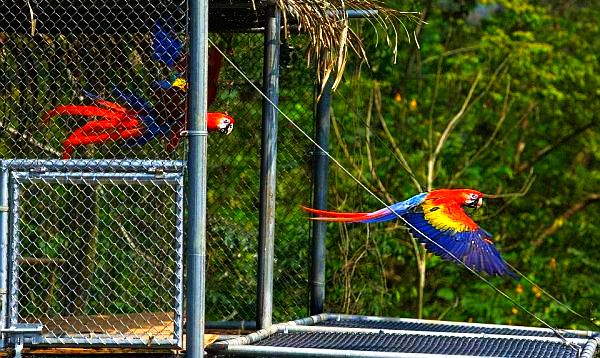Chiapas, Mexico - Thirty specimens of the scarlet macaw were released in Palenque National Park in the Mexican state of Chiapas as part of a program to preserve this species, according to officials at the ecopark.
With this release, 100 scarlet macaws have now been set free into the wild in Palenque, the press office of the national park, managed by the civil association Acajungla, said in a press release.
The freeing of the 30 scarlet macaws, carried out this week and open to the public, seeks to "reverse the process of the extinction of this species," the statement read.
The Aluxes Palenque Ecopark collaborates with the Biology Institute of the National Autonomous University of Mexico (UNAM,) and with the Xcaret nature park of Quintana Roo, to reintroduce and preserve the scarlet macaw in the tropical jungles of Chiapas, in the southeastern part of the country.
Palenque National Park is an ideal place for restoring the population of these parrots, Alejandro Estrada, the UNAM biologist in charge of the project, said.
"This species was extinct in the Palenque region for some 50 years, chiefly due to the illegal trafficking of its fledglings," stated Estrada.
The macaws reintroduced in the region are part of a breeding program developed by the Xcaret nature park, whose goal is to release 250 specimens over a five-year period.
Last week 27 scarlet macaws were released in the La Otra Opcion preserve in the Los Tuxtlas region, in the eastern Mexican state of Veracruz, as part of the program.
Studies conducted by specialists in early 2013 concluded that there were no more than 240 scarlet macaws in Mexico's jungles due to habitat destruction and poaching.
The scarlet macaw population has grown 41 percent since then, thanks to the breeding and reintroduction programs in Chiapas and Veracruz run by the Xcaret nature park, UNAM, and community groups.
Original Story


